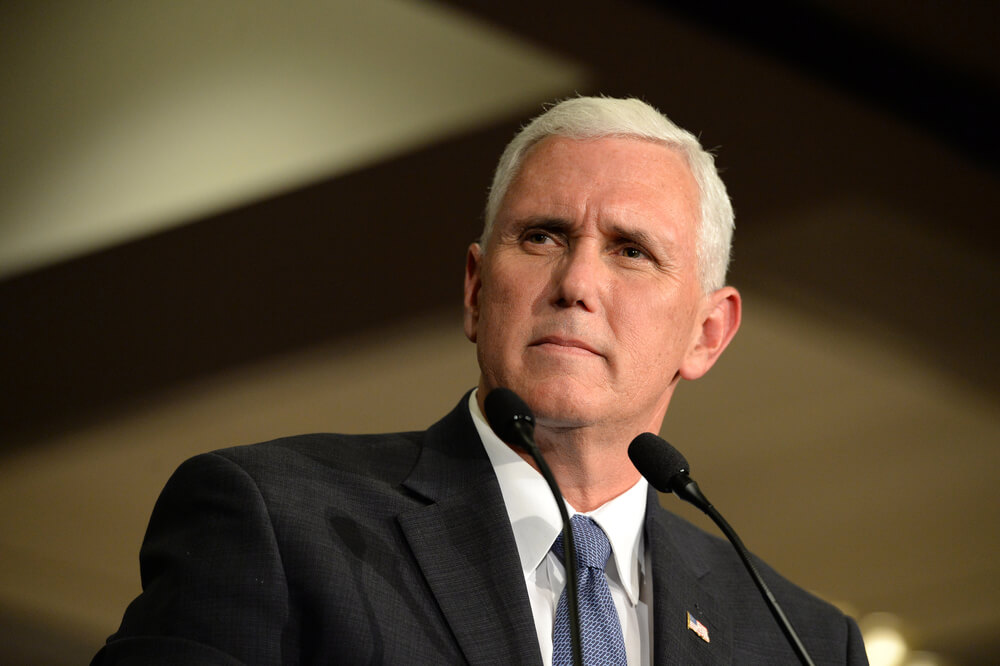Vice President Mike Pence picked up where President Donald Trump left off a week ago, accusing China of using a number of tactics to interfere in next month’s midterm elections, claiming “China wants a different American president.”
“Beijing is employing a whole-of-government approach, using political, economic and military tools, as well as propaganda, to advance its influence and benefit its interests in the United States,” Pence said during a major policy address Thursday at the Hudson Institute. “China is also applying this power in more proactive ways than ever before, to exert influence and interfere in the domestic policy and politics of our country.”
Already embroiled in a seemingly ever-escalating trade war, Trump and Pence are pouring gasoline on the dispute between the world’s two largest economies.
“Regrettably, we found that China has been attempting to interfere in our upcoming 2018 election,” Trump said last week. “They do not want me, or us, to win because I am the first president ever to challenge China on trade.”
Pence hit China over a number of topics including its militarization of the South China Sea, trade practices, intellectual property theft and its interference in U.S. politics, piggybacking on Trump’s speech to the United Nations Security Council.
As proof of election meddling they have pointed out a paid advertisement in the Des Moines Register and other newspapers by Chinese government-affiliated entities.
The ads aren’t illegal, though Pence took exception to the fact that Chinese outlets won’t let U.S. officials place similar ads in newspapers in China.
“The supplement, designed to look like news articles, cast our trade policies as reckless and harmful to Iowans,” Pence said of the ad in the Des Moines Register. “But when our ambassador tried to place his own op-ed in Chinese newspapers, describing the truth about our policies, no Chinese outlet would publish it.
Pence also slammed China over for “reckless harassment” when one of its ships for coming within 45 yards of the USS Decatur in the South China Seas this week, forcing the Decatur to reverse to stop the ships from colliding. Beijing has been constructing military bases to intercept naval exercises designed to contest China’s territorial expansion in what are international waters.
“The United States Navy will continue to fly, sail and operate wherever international law allows and our national interests demand,” he said. “We will not be intimidated; we will not stand down.”




